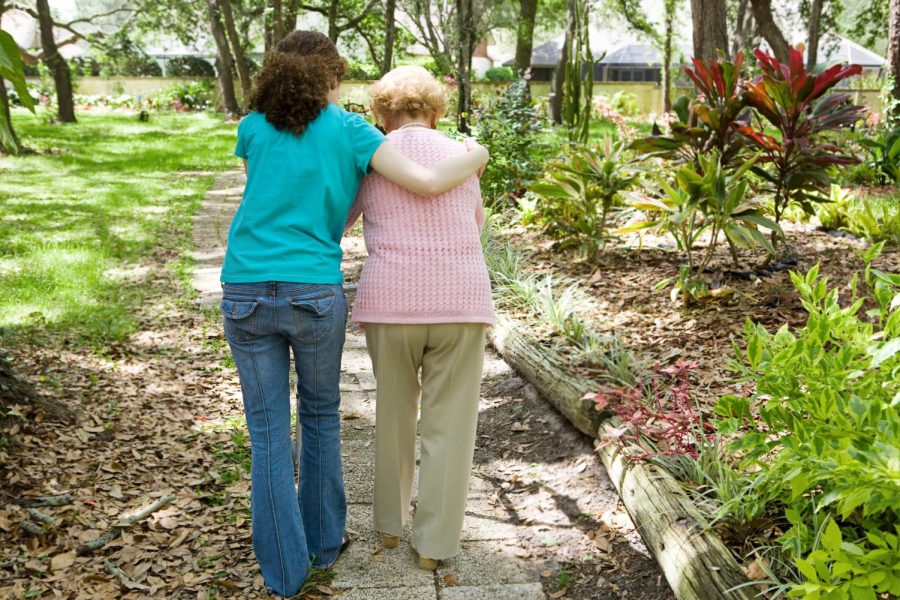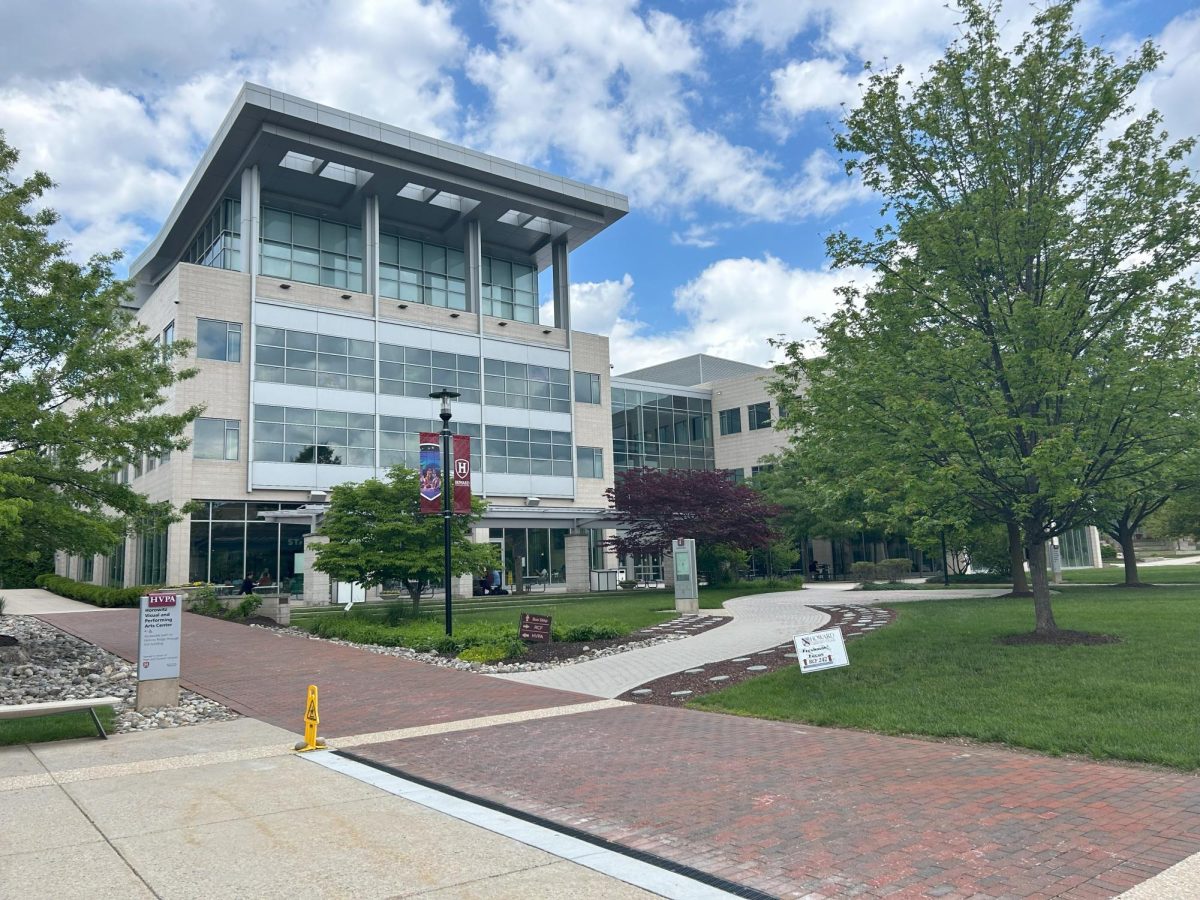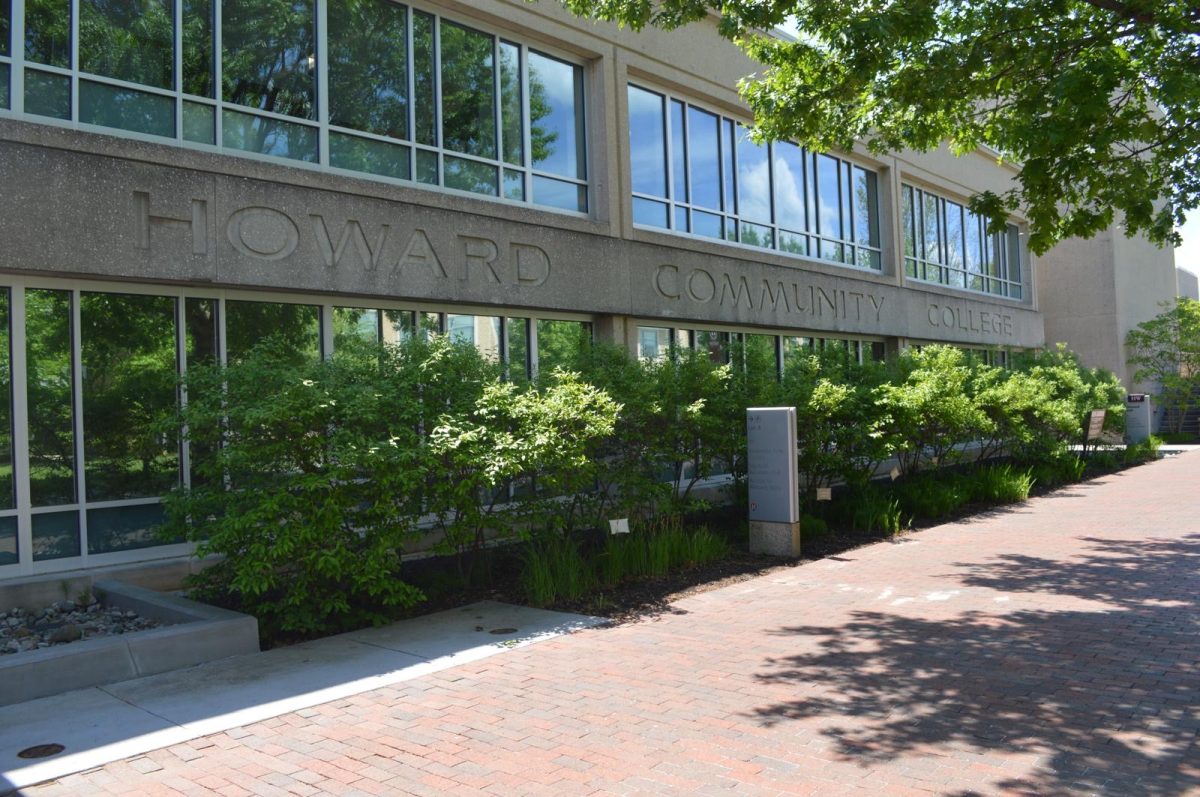College Student Caregivers And The Academic Challenges They Face
A young girl helping her grandmother walk outside in nature
April 11, 2023
College students who are also the primary caregiver for a family member, whether that be an elderly or ill relative, is more common than one may think. According to a 2020 study conducted by AARP, there are five million college students caring for adults, and over half of them report feeling their caregiving duties take away from their ability to be academically successful.
Although caregivers can be any age, people do not often associate them with teenagers and young adults. However, young caregivers make up 12-18% of the overall population of caregivers. At a time when a student should be focused on their academics and or figuring out their career plans, college students between the ages of 18 and 25 can also be faced with the responsibility of being a caregiver.
Sometimes unexpected situations happen where a family member experiences an accident or sudden illness, leaving them with few flexible options for care. This could be due to high costs for care facilities or the fear one has to let their family member in the hands of strangers. If the type of care does not require daily or weekly professional attention, family members can often decide to take care of the individual at home.
Some reasons why college students may take on the responsibility as a caregiver to a relative is to help ease the stress off of their parents who already have demanding work schedules, there is no other family member to rely on or professional care expenses cannot be afforded. Families may also want to keep their loved one close to the family as almost half of elderly people living in senior care centers experience isolation, loneliness and depression.
The demand for caregiving can vary based on how many hours are needed to care for the person and depending on what health conditions and level of independence they have. The common responsibilities of a student caregiver for an elderly or ill relative can include preparing and feeding meals, assisting with showering, organizing and distributing medicines, planning healthcare visits and being their main form of transportation.
More and more college students are becoming primary caregivers for a family member which is a wonderful way to help one’s family, but it can also affect their ability to be academically successful in higher education and push them back in their long-term careers.
The Academic Challenges
Some students may only need to provide care a couple hours a week, while other students can be caring for up to 24 hours a day because the family member lives with them and requires constant care due to poorer health conditions. In return, this affects the amount of time a student has to tend to their academic schoolwork, leaving them feeling highly stressed and overwhelmed to wonder how they can manage it all.
With the heavy load of tests, homework, projects, essays, etc., a college student caregiver can find it almost impossible to organize time for studying and completing assignments on time. Caregiving can turn into a full-time job, causing many college students wanting to drop out of school.
Focusing on the tasks for caregiving has to come first because, in many cases, a person’s life lies in the caregiver’s hands. That is why it can become easy for a student to fall off track during the semester from responding to the much higher priority that is caring for a family member’s daily or weekly needs.

Student caregivers often miss class and are more likely to struggle to concentrate and be attentive in class than non-caregiver students are. Research shows college students who are caregiving 3 to 5 days a week have much lower GPAs.
A suggestion for college student caregivers is to look into online learning programs. Although online classes still require much devoted time and focus, it helps to limit the amount of times one has to leave their elderly or sick family member unattended. Online learning can benefit college students to balance caring for their family members’ needs and their schoolwork all in one place at the same time.
College student caregivers and the problems they face trying to manage all their responsibilities at once is a significant concern that colleges should look further into, as many have to stop short in their education and careers. Colleges can conduct research on how many students they have who also take care of an elderly or sick family member. Then, they can design ways to alleviate the academic and mental health risks that one may endure and help with more targeted counseling services.
If you are a current student at Howard Community College and are the primary caregiver for a family member, there are mental health services such as personal or group counseling to utilize if you are feeling overwhelmed and need someone to talk to. These resources can help support you in the challenges you face academically or personally.







